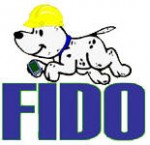
Capability Maturity Model Integration for Development (CMMI-DEV) is part of the CMMI product family. It is a process improvement maturity model for the development of products and services. It consists of proven practices that address development and maintenance activities that cover the product lifecycle from conception through delivery and maintenance of software, resp. IT services. »
⇑

The Appraisal Requirements for CMMI (ARC) V1.2 defines the requirements considered essential to appraisal methods intended for use with Capability Maturity Model Integration (CMMI) models. In addition, a set of appraisal classes is defined, based on typical applications of appraisal methods. These classes are intended primarily for developers of appraisal methods to use with CMMI capability models in the context of the CMMI Product Suite. »
⇑

In SCAMPI appraisals the FIDO Database manages all appraisal data, reports, and presentations and is highly-rated by appraisal teams. With a FIDO Database, teams spend less time organizing data and have more time available to analyze the data and prepare findings. »
⇑

The Standard CMMI Appraisal Method for Process Improvement (SCAMPI) is designed to provide benchmark quality ratings relative to Capability Maturity Model Integration (CMMI) models. It is applicable to a wide range of appraisal usage modes, including both internal process improvement and external capability determinations. SCAMPI satisfies all of the Appraisal Requirements for CMMI (ARC) requirements for a Class A appraisal method and supports the conduct of ISO/IEC 15504 assessments as well. »
⇑

A Process Assessment Model (PAM) relates to one or more Process Reference Models. A PAM holds all details (so called indicators) to determine process maturity. It is aligned in two dimensions: process and process maturity dimension. »
⇑

A Process Reference Model (PRM) describes for a certain application domain a set of processes. Each process is described by its purpose and the associated process outcomes (i.e. work products). »
⇑

(Deutsch) ISO/IEC 15504 — auch bekannt unter dem Namen SPiCE (Software Process Improvement and Capability dEtermination) ist eine internationale Norm des ISO-Institutes zur Bewertung von Unternehmensprozessen für Software- und Elektronikentwicklung (Embedded Systems). ISO/IEC 15504 ist in den neunziger Jahren aus einem Projekt des Joint Technical Subcommittee zwischen der ISO und der IEC entstanden. Gegenstand von ISO/IEC 15504 ist die Bewertung von Softwareentwicklungsprozessen (sogn. Prozessassessments) und die Anforderungen an solche Bewertungen, sowie die Nutzung der Norm. ISO/IEC 15504 definiert in einem Referenzmodell zentrale Prozesse,deren Relevanz bei jeder Software-/Embedded System-Entwicklung betrachtet werden sollten, und in einem Assessmentmodell, wie die Ausprägung dieser Prozesse in einer Organisation zu bewerten sind. »
⇑

A change agent or agent of change, is someone who intentionally or indirectly causes or accelerates social, cultural, or behavioral change. »
⇑

Capability Maturity Model Integration (CMMI) is a product suite to improve the organizational process maturity in the fields of product development, acquisition, and service delivering. It is developed and maintained by the Software Engineering Institute (SEI) at Carnegie Mellon Univ. »
⇑
|
|









